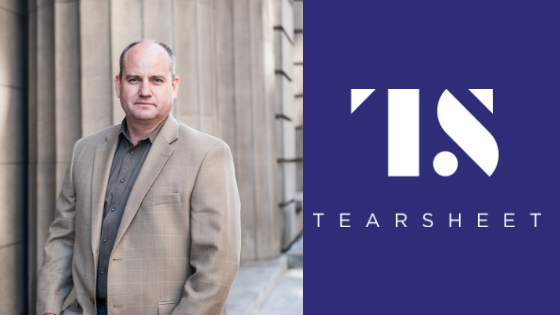Podcasts
Uprise makes entrepreneurial finance simple feat. CEO Jessica Chen Riolfi
- This episode of the Tearsheet podcast features Jessica Chen Riolfi, co-founder and CEO of Uprise, a company providing embedded financial advisory services for small business platforms.
- We explore how Uprise evolved from serving Gen Z customers to focusing on small business owners, and dives into their unique approach of combining personal and business financial advice while partnering with established platforms to reach their target market.
Zachary Miller | December 11, 2024
Podcasts
Why Coast’s live API demos matter in fintech feat. Kara Parkey
- In this Tearsheet podcast episode, Coast's head of strategic accounts Kara Parkey explains how the company is transforming fintech through interactive API demonstrations.
- She discusses how Coast's innovative platform helps financial institutions accelerate sales and streamline onboarding.
Zachary Miller | December 02, 2024
Podcasts
Peter Renton’s Fintech Forecast: Banking as a Service, Embedded Finance, and the Future of Open Banking
- Peter Renton, a veteran fintech innovator and founder of Renton Co., offers a comprehensive look at the current financial technology landscape on the Tearsheet podcast.
- Drawing from over a decade of industry experience, he provides unique insights into the transformative potential of banking as a service, embedded finance, and open banking.
Zachary Miller | November 22, 2024
Podcasts
From Bitcoin to Tokenized Assets: A roadmap for Web3 in finance with Rumi Morales
- Join Rumi Morales of Outlier Ventures on the Tearsheet podcast as she unpacks the current state and future of Web3 in finance, drawing on her experience from CME Group, Digital Currency Group, and Goldman Sachs.
- From data ownership and tokenization to the challenges of integrating Web3 into traditional finance, Morales offers a grounded perspective on the progress, potential, and obstacles facing blockchain and decentralized technology today.
Zachary Miller | November 15, 2024
Banking, Podcasts, SMB Finance, TBBT Conference 2024
‘If banks are only investing in the experience layer but the foundational tech is archaic, we’re going to have a hard time creating integrated experiences’: U.S. Bank’s Scott Beyer
- How can FIs simplify the financial challenges for SMBs, freeing them to focus on growth without getting bogged down by banking tasks?
- Scott Beyer, Head of Business Banking Digital Experiences at U.S. Bank, outlines key strategies, with technology as a foundational element, that FIs can implement to address these issues.
Sara Khairi | November 01, 2024





